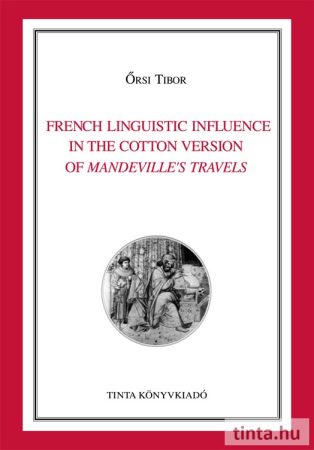- Nuove Uscite
- Csomagban olcsóbb
- Mindenki angolul tanul
- Előkészületben
- Nyelvünk virágai
- Idézetek, szállóigék, bölcsességek
- Szólások, közmondások
- Felvételizőknek
- A magyar nyelv kézikönyvei
- A magyar nyomtatott örökség feltárása
- Anyanyelvi felmérők
- Anyanyelvi kompetenciafejlesztő munkafüzetek
- Az ékesszólás kiskönyvtára
- Bibliotheca Regulyana
- Diszlexia, diszkalkulia
- Életrajz
- Híd szótárak
- Iránytű sorozat
- Ismeretterjesztő
- Kétnyelvű könyvek nyelvtanuláshoz
- Kifestőkönyvek, színezők
- Kommunikáció
- Lexikográfiai füzetek
- Lexikon, enciklopédia
- Mesekönyv
- Mesterművek
- Modern Nyelvoktatás
- Naptár, notesz
- Notesz
- Növény- és állatnevek
- Nyelvészet
- Nyelvi játékok, fejtörők
- Nyelvtani munkafüzetek az 5-12. évfolyam részére
- Nyelvtanulás
- Segédkönyvek a nyelvészet tanulmányozásához
- Szépirodalom
- Szótár
- Történelem
- Útleírás
- Vallás
- Zene
- E-könyv
- Folyóirat
- 2025-ben megjelent könyveink
- 2024-ben megjelent könyveink
- 2023-ban megjelent könyveink
- 2022-ben megjelent könyveink
- 2021-ben megjelent könyveink
- 2020-ban megjelent könyveink
- 2019-ben megjelent könyveink
- 2018-ban megjelent könyveink
French Linguistic Influence in the Cotton Version of Mandeville's Travels
-
Szerző Őrsi TiborSorozatszám 57Oldalszám 202Kötés típusa puhafedelesFormátum B/5Codice articolo 9637094547Peso 330 g/db
-
Mandeville&aposs Travels - a fictitious travel guide to the Holy Land and the Far East - was one of the most popular books in the Middle Ages. It was compiled in French around 1356 and translated into English and eight other languages shortly afterwards. Its unknown translator was thought to have written the book himself. He enjoyed great popularity and was considered as "the father of English prose". Due to its encyclopedic character, the Travels discusses a variety of topics, which makes it an ideal tool for vocabulary study.Relying on text editions, dictionaries and language histories, Őrsi subjects the Cotton Version in Middle English and the Insular Version in Anglo-French to rigorous scrutiny. His work combines the traditional philological method with the use of the latest electronic and online editions of historical dictionaries. He discusses in detail the procedural difficulties that arise throughout this type of work. The clear-cut distinction between French-derived and Latin-derived elements in Middle English proves impossible. Instead of attempting the proportional break-down of native and foreign lexis, he investigates particular areas in detail. He identifies eight procedures that allowed the translator to introduce a French word into English. He goes on to discuss thoroughly the earliest occurrences of borrowings from French, unique attestations, the most frequent attestations, learned phrases with adjectives. The chapter devoted to French phraseological influence explores a particularly neglected area of language contact. The lavish use of native and French synonyms in the English Version constitutes a significant addition to the French text. Another major innovation of the Middle English translation is what he terms as lexical disagreement: the words of French origin in the English version fairly often differ from the corresponding ones in the French original. The book concludes with the distinction between two fundamentally different channels of French influence at work when the Cotton Version was translated.
The book makes a substantial contribution to our understanding of the vocabulary and the development of the English and French languages. Clearly organized and accessibly written, it will appeal to students of linguistics and academics alike.
The author is a senior lecturer at the French Department of Eszterházy Károly College in Eger, Hungary.
-
French Linguistic Influence in the Cotton Version of Mandeville's Travels
Eger Journal of English Studies (179–183. oldal), 2008-06-01, Hegedűs Irén

